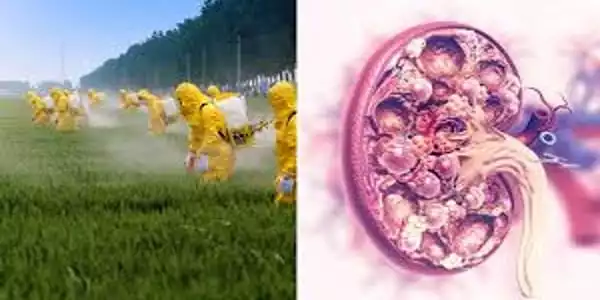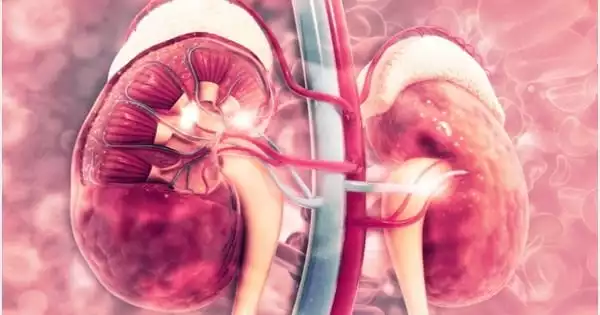Your kidneys are important organs that filter 180 liters of blood every 24 hours. Chemicals and poisons are also filtered by our kidneys. Chemical chemicals can have a negative impact on the kidney, ureter, or bladder (Kidney Toxicity). Because of its role in blood filtering, the kidney is vulnerable. Some toxins and heavy metals cause severe kidney damage, while others create long-term alterations that can lead to renal failure and cancer.
In a University of Queensland study, a routinely used herbicide was linked to an elevated risk of chronic kidney disease (CKD). Using data from the National Health and Nutrition Examination Survey in the United States, researchers examined correlations between pesticide exposure and the risk of renal failure in 41,847 adults (NHANES).
According to Nicholas Osborne, Associate Professor at the School of Public Health, those exposed to greater levels of the insecticide Malathion, also known as Maldison in Australia, had a 25% increased risk of renal dysfunction. “Nearly one out of every ten persons in high-income nations exhibit indications of CKD, which is lifelong kidney damage and loss of renal function,” Dr. Osborne explained.
Risk factors of developing CKD include age, hypertension and diabetes.
The findings imply that we should limit our exposure to pesticides, even in very small doses, because persistent exposure may result in bad health outcomes. We will continue to look at whether other chemicals are involved, and we want to collect data on Sri Lankan farmer behaviors to examine their degree of exposure when using pesticides in the field.
Nicholas Osborne
Some persons are more prone to kidney disease than others. Diabetes and high blood pressure are the two leading causes of renal damage. A diabetic may have damaged blood arteries in the kidneys, resulting in unfiltered blood. With high blood pressure, the heart is pushed to work harder and longer, which damages blood cells and the kidneys. If you have one of these disorders, it is critical that you become acquainted with the hazards in your workplace because you are already at a high risk of developing renal disease.
Benzene and organic solvents such as fuels, paints, and degreasing chemicals are examples of occupational products that can cause kidney damage and failure. Fertilizers and insecticides, for example, can potentially induce kidney disease. Heavy metal exposure in the workplace, such as cadmium and lead, is also known to cause toxic kidney injury.

According to Dr. Osborne, CKD with no known cause is on the rise in low-to-middle income nations such as India, Sri Lanka, and Mesoamerica. “At first, it was assumed that the disease was caused by exposure to heat stress, dehydration, pesticide spraying, heavy metals, and agrochemicals in agricultural industries,” Dr. Osborne added. “However, environmental contaminants, pesticide residues, and herbal medications containing heavy metals could all be contributing to CKD.”
The reason of increased CKD is unknown, but working with polluted soil and spraying pesticides without personal protective equipment (PPE) have been postulated as possible exposure pathways.
Dr. Osborne stated that the UQ study was the first to show a relationship between Malathion and the likelihood of poor kidney health in individuals. “The findings imply that we should limit our exposure to pesticides, even in very small doses, because persistent exposure may result in bad health outcomes,” stated Dr. Osborne.
“We will continue to look at whether other chemicals are involved, and we want to collect data on Sri Lankan farmer behaviors to examine their degree of exposure when using pesticides in the field.”
Malathion is approved for use in agriculture, the home, and public recreation areas as part of mosquito and fruit fly eradication programs, and it is also contained in several topical head lice treatments.
It is critical for kidney health to drink water when working outside, especially on hot days. Water excretes waste from your blood in the form of urine and aids in the opening of blood vessels, allowing nutrients to reach your kidneys. Your kidneys have to work harder to eliminate waste and provide nutrients when you are dehydrated. Mild dehydration produces weariness and can interfere with several essential body functions. Severe dehydration can cause kidney damage, so drink plenty of water when working outside or exercising vigorously, especially in hot and humid conditions. Dehydration on a regular basis might cause permanent kidney damage.














